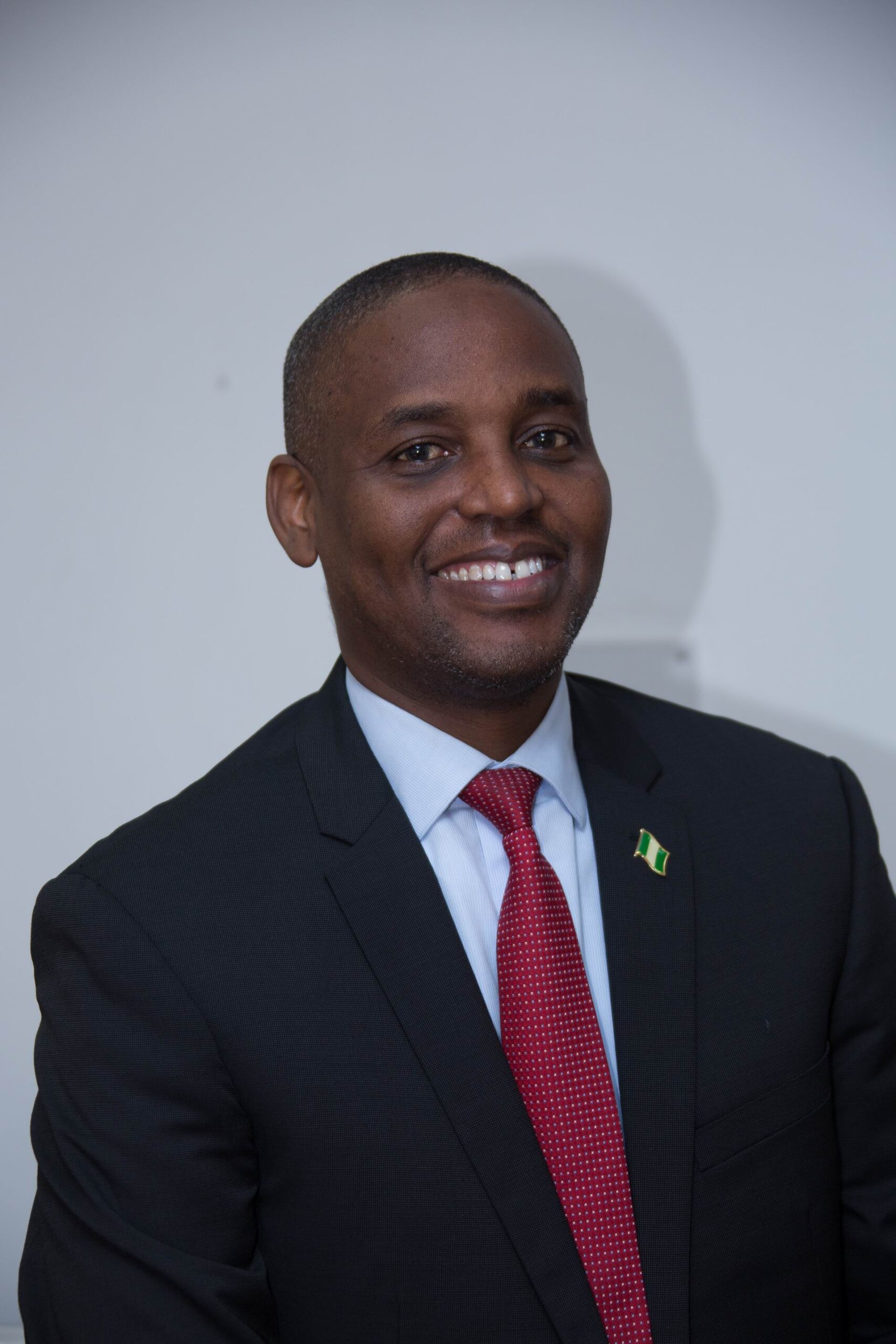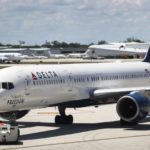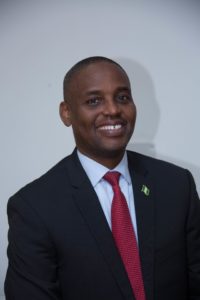
Aero Contractors can rescue other Nigerian airlines if it expands its maintenance facility as many of them may not be disposed to robust financial outlay to continue to conduct overseas checks on their equipment.
The resurgence of Aero Contractors after five months of suspending its scheduled commercial service due to financial challenges, no doubt, has raised the hope for Nigerian carriers.
If it could expand the scope of its maintenance from certified checks on Boeing Classics, Bombardier Q300 and Q400 (Dash 8) helicopters to include Embraer 145 and other aircraft types that operate in the country, it will save airlines the high cost of overseas maintenance.
The airline has also added capacity with six operating aircraft, which means that there would be availability of equipment to meet the expected surging passenger demand during the Yuletide season, as the airline resumes flight service to 10 destinations.
Last week, the company hosted journalists and others in a ceremony to mark the resumption of flight service after the shut down and the Managing Director and Chief Executive Officer (MD/CEO) of the airline, Captain Ado Sanusi, unveiled its plan in the area of scheduled commercial service, its Maintenance, Repair and Overhaul (MRO) wing, training and its oil and gas shuttle service.
Restructuring
Sanusi explained that Aero Contractors Company of Nigeria, the oldest aviation company in Nigeria, suspended scheduled service on July 20, 2022 to enable the airline restructure and reposition itself. Having satisfied all regulations and requirements of the Nigerian Civil Aviation Authority (NCAA), we have been given a nod to start our schedule operation, Sanusi said.
He stated that the airline would operate Boeing 737 Classic, Dash8 both Q400 and 300 aircraft, revive its oil and gas shuttle service, expand the MRO division to extend checks on other aircraft types and also reinvigorate its rotary wing to provide service to the oil and gas industry and further develop its training unit for increased manpower development in the industry.
“Initially, we will be servicing up to 10 destinations, including Warri, Lagos, Port Harcourt, Abuja, Benin, Yola, Kano and Asaba. We will also be launching Calabar. Aero contractor is commencing operations with a new management as you can see. We have a new Chief Financial Officer in the person of Mr. Charles Grant. The new improved Aero Contractors is structured in such a way that it has four strategic business units. And these four strategic business units will support each other. We have the MRO, which you are all aware of, and we have improved it, we are doing a lot of extensions to move into other aircraft types. Engine maintenance for instance, and we also will be looking at Embraer product and probably Airbus product for maintenance. We are also looking at the rotary wing; that is another strategic business unit. And we intend to revitalise that business unit with more helicopters because we believe there is still some future in fossil fuel exploration,” he said.
Sanusi said the company would have to invest more in the rotary wing and probably get more helicopters to revive that business unit.
“We are also improving the strategic business unit of training, approved by the Nigeria Civil Aviation Authority to conduct training for third party. Most importantly, it will cater for the entire Aero Contractors needs for training. So it will cut our cost and we will also provide this standard and excellent training for third parties, then of course the mainstream airline, which is the strategic business unit of the airline itself. So, all other business units will support the airline. We intend to launch as I said with the aircraft and 2023 we are looking at a very aggressive growth. We intend to bring Aero Contractors back to its rightful place. We intend to see whether we can capture the majority market share of the flying public in Nigeria and hopefully we will launch regional; most likely towards the end of the last quarter of 2023,” the Aero MD/CEO said.
He explained that Aero has new products for the flying public, which include good airfares and with increased capacity, the airline hopes to stabilise the market and this is coming after the literally strangulating high fares that forced many to stay away from the airports and chose road travel, despite the risks.
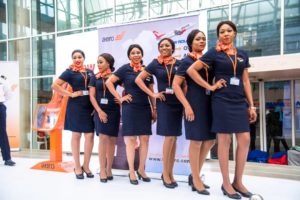
Insisting that Aero has come to stay this time and has strategized for the long haul of its existence, Sanusi said, “I can guarantee you that we have studied what we have done before, we have looked at what actually caused the failures of the past and we are very determined not to repeat the same mistakes and to expect different results. So we are very determined, we have a team of experts, my team are very experienced in seeing what has happened before and believe me that is why it took us a little longer to come back. Because we were studying and making sure when we launch, we launch differently. And we believe and we are confident that the mistakes of the past will not repeat itself.”
Aircraft Maintenance
Sanusi also spoke about Aero’s plan to provide more maintenance service to Nigerian airlines. He lamented about the current realities whereby Nigerian carriers that have their aircraft in maintenance facilities overseas cannot bring them back due to high cost of forex. The airlines are also beset by other challenges maintaining their aircraft overseas, which include waiting for slots and the cost of ferrying the aircraft outside the country. With many aircraft on maintenance queue, Nigerian airlines have resorted to leasing equipment, which may not be profitable due to limited operating hours in Nigeria. Many airports are on daylight service so the leased aircraft are not fully maximized for optimum revenue yield, but the airlines have to build capacity to meet the demand of the high season.
“For any airline to have a wet lease it must be an interim arrangement; it is not a permanent arrangement. There is no airline in Nigeria that will succeed and make profit with wet leased aircraft; it is not possible. So I believe that these airlines that are into wet lease, they are just doing it temporarily and they will definitely go back to flying their own airplanes. Now, we understand that it is getting harder and harder for airlines to take their airplanes overseas for maintenance. So that is why we are trying to increase our capacity. You can see we are trying to extend this (maintenance) hangar; we will also equip the hangars. We are also looking at strategic partnership with MROs around the world, especially in Africa first but around the world to see where we can bring expertise to argument what we have so that we can cater for at least 90 per cent of the types of airplanes flown in Nigerian airspace. Mostly the Boeing 737s, the Embraer and probably we might even look at Airbus like I said,” he assured.
In order to support other airlines technically, Sanusi said Aero would in addition to carrying out C-check on Boeing 737 classics, Bombardier Dash 8 aircraft, helicopters; it would start line maintenance on Embraer 145 and Airbus, after being certified by the regulatory authority, NCAA.
“So we will start offering line maintenance (on Emrbaer 145 and Airbus aircraft) and since I came, I have had series of meetings with airlines that are looking for us to offer our services even in line maintenance before we come to base maintenance. We are working very hard to ensure that we have investors that will invest in maintenance. This is because we must have a formidable maintenance organisation for the aviation industry to prosper,” he further said.
Training Engineers
In the area of training, Sanusi said Aero has started training engineers and other technical staff that would carry out checks on the new aircraft types it wants to add to its maintenance.
“We must train and we have started. We have started to improve on the Dash 8 Q400; we are commencing training very soon for the engineers. We have trained already engineers on the Embraer 145. Apart from even the types of airplane we will also start training for companies here. That means we are going to improve our capabilities based on the workshop. There are so many things we are looking at and the most important of everything is training. Before we put anything to NCAA for increasing our capabilities, we must show them that we have adequate staff, well trained,” he said.
Finance
The Aero MD/CEO noted that the major challenge Nigerian airlines are facing is finance and expressed fear that if not well managed it would erode the existence of some of the airlines and they would be forced to go under. He remarked that the operating environment is not friendly to flight operations, urging that government should be sensitive to the success and failure of Nigerian airlines.
He observed that in the last 30 years airlines have complained of the same challenges and in the sane period airlines have not been operating profitably, so government should be curious and find out why Nigerian airlines are not making the expected success despite having relatively high passenger traffic.
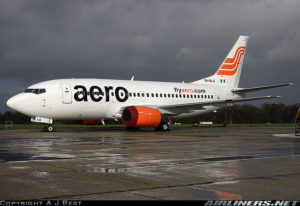
“The challenge for all airlines is finance. And Aero Contractors voluntarily suspended operations probably because of finance. So every airline in this country is experiencing challenges with finance, foreign exchange, and multiple taxation. We need aviation industry to come together and understand why year after year for the past three decades we have been experiencing airlines having financial problems. Maybe we are taxing them too much. Meanwhile, I keep saying that we cannot tax to growth, meaning you cannot tax airlines to grow the parastatals, it is not possible. It is never done anywhere. So we have to look inwards first to address the latent problem of airlines in this country. Every airline has challenge of financing for the past 30 years. I don’t think any airline has posted profit in this country. So what does that tell you? That means there is something wrong. Maybe the environment we are operating in is not favourable.
“Other airlines outside even in Africa are posting profit, so why are we not posting profit? It is because there is something fundamentally wrong. Now back to Aero Contractors, yes, we have challenges of financing but we have looked at our cost structure, we have tried to reduce our cost. We have tried to look at outsourcing things that we can outsource to reduce the cost. The four strategic business units that we have will complement the airline itself, so that we can reduce spending outside. We are doing our own in-house maintenance to reduce our cost. What we are doing is to reduce our cost and AMCON has graciously.
If Aero Contractors succeed in its mission, it will enable other Nigerian airlines to also succeed. Maintenance is capital intensive. It becomes financially challenging when aircraft are ferried out of the country for maintenance. So if Aero is able to maintain 90 per cent of Boeing 737 classic, this would go a long way in helping the airlines save money. It will also enhance technical manpower development, as more Nigerians will be trained in aircraft maintenance.
Industry stakeholders have posited that one of the reasons why Nigerian airlines do not make profit is the high cost of maintenance because they ferry their aircraft overseas and noted that it would be a new awakening for the aviation sector when commercial aircraft would be fully maintained locally. Aero is raising that hope for Nigerian carriers. given us a mandate to raise funds. And we are doing that with the financial institution in the country and outside the country,” Sanusi stated.


